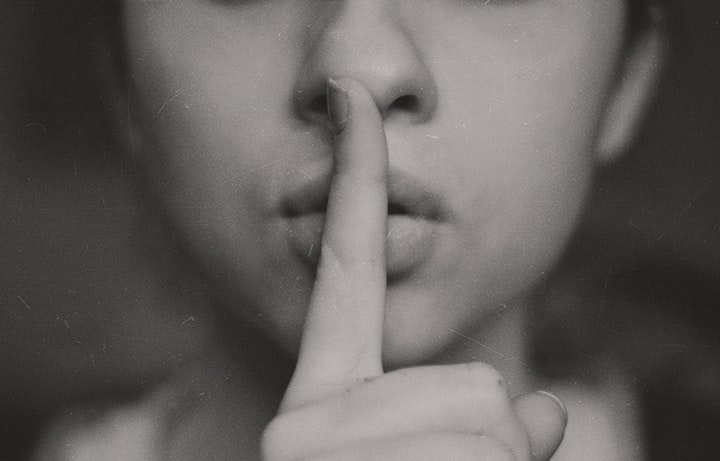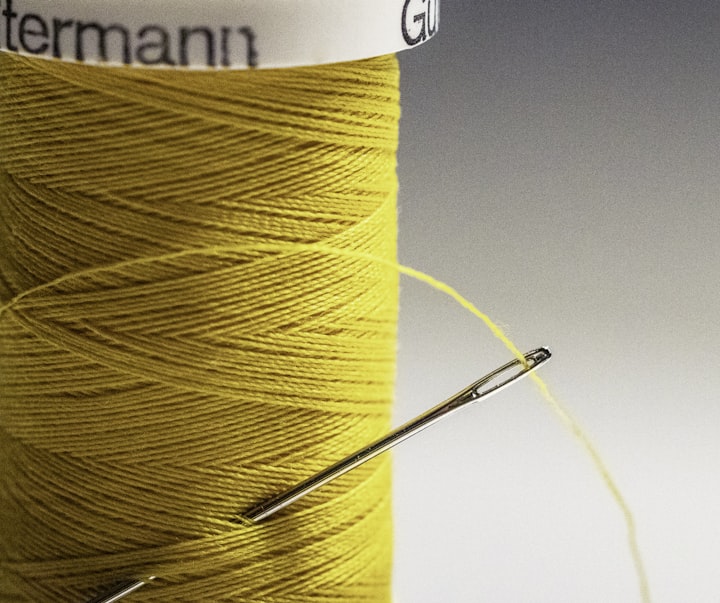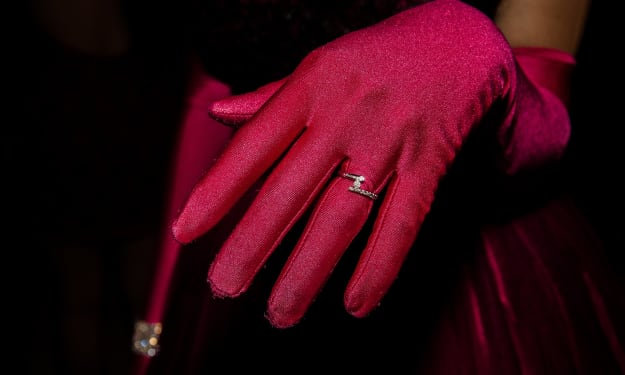I'm Afraid to Share My Story
On Being a Secret-Keeper

My therapist and I were talking the other day...
If you hang around me long enough, you'll learn that a LOT of my sentences start like that. Part of it might be that, aside from my partner and children, my therapist is one of the only people I talk to now that we have all been locked inside for the better part of a year.
Part of it is definitely because I talk to my therapist a lot.
Where was I?
Oh yes. My therapist and I were talking the other day. We were talking about the way that dysfunctional families require their members to keep secrets. Whether it is an addiction or abuse, there's an unspoken rule that family matters are not to be spoken of to outsiders.
Here I am, 36 years old and otherwise fairly emotionally healthy and well-adjusted (everything except my age here is open to debate) and I am so scared to talk about my childhood experiences - really talk about them - that I am writing an entire article about why I'm scared to talk about them.
Instead of, you know, just talking about them.
Why am I scared?
First, this secret-keeper thing digs deep. It's just part of who I am. I feel like if I let the secret out, I will have failed my one mission and endangered everything I hold dear.
This is not true. I know it is not true. My feelings don't care about the facts, though.
I'm not afraid of my mother anymore. I might be, but she's been gone for almost two years now and even I can't drum up the emotional illogic to be scared of someone who no longer exists on this plane of existence.
Surprisingly, she wasn't the only thing holding me back.
These are the things I know I am afraid of.
I am afraid of ruining my mother's reputation. As a secret-keeper, it was my job to make sure I never made her appear to others in a way that marred her carefully sculpted image.
People loved my mother. They miss her. She was a well-respected woman in her circles. Even I still live by much of her advice. It was advice that was generally not reflected in her home life, but still. Good advice.
She was also a great listener. Not to her children, generally, but people naturally opened up to her. She made them feel heard.
It's painful to listen as others recount my mother's patience, grace and compassion to them. I was there; I know she could be like that. I also know that it was mostly a facade. She collected people's weaknesses and exploited them in various ways to make herself feel better - to make herself feel needed, superior, or whatever emotion she wanted to manufacture.
Most people, I think, were largely unharmed by this habit of hers. She wasn't as big of a gossip as you might assume from the previous paragraph, and sometimes all one needs is to talk through one's problems.
I am loathe to ruin someone's memory of my mother just so I can feel like the Truth is out. If she helped them in some way, isn't that enough? Does it really matter what she was like behind closed doors?
Another fear that stops me from telling my story is a sense of complicity. As the oldest child, and as my mother's favorite emotional regulator, I tended to cooperate rather than fight. This meant I was sometimes the enforcer of her wishes, often an enabler to her irresponsibility, and always a smiling, supportive presence (when I wasn't sobbing my lungs out in a dark corner somewhere).
My mother died thinking everything was fine between us, and in a way it was. I had long ago given up the illusion that she might be able to own her part in anything that had happened to me. Even as a child I knew instinctively that a glance in the mirror at her true self would devastate her.
Because everything was fine between us, it feels very two-faced of me to turn around after she's gone and accuse her of things I didn't have the guts to confront her with in life. And lurking over my shoulder is a gremlin reminding me that I should have stood up to her rather than participate in a family system that traumatized my younger siblings.
And classically, I fear I won't be believed even as I am afraid that I will say things that aren't true at all because I mis-remembered them. My confidence in my own perspective is something I've had to work hard for over the last several years, and it is still incredibly shaky.
Finally, I worry that talking freely about my childhood experiences will make life more complicated or difficult for other family members who may or may not be ready to (or want to) publicly face these issues.
Fellow secret-keepers, how have you broken free from the dysfunctional code of silence you grew up under? Tell me your secrets.
About the Creator
Rebecca Hansen
Putting words down in writing makes me feel alive. What do I write about? Yes. Also that. I like to think that my randomness is charming.






Comments
There are no comments for this story
Be the first to respond and start the conversation.